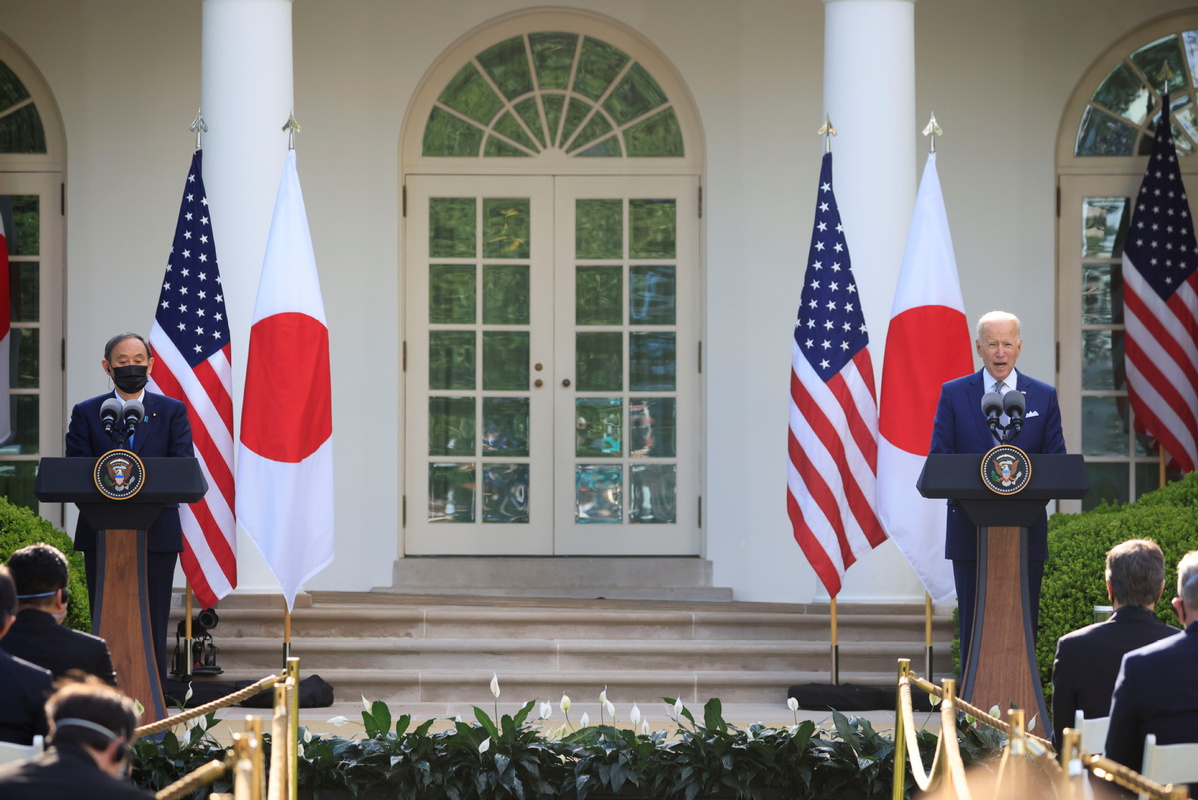US, Japan put on irresponsible show: China Daily editorial
chinadaily.com.cn | Updated: 2021-04-17 12:13

It comes as no surprise that China featured prominently, if not dominantly, in Friday's summit meeting between US President Joe Biden and Japanese Prime Minister Yoshihide Suga in the White House. The pair reportedly discussed a number of issues including Taiwan, Hong Kong and the Xinjiang Uygur autonomous region.
Judging by the two leaders' remarks at the joint news conference held after the meeting, the two countries intend to act in collusion against China.
In the Rose Garden news conference on Friday, Biden said the United States and Japan were "committed to working together to take on the challenges from China" on issues such as the East China Sea and the South China Sea to ensure "a free and open Indo-Pacific".
Suga, for his part, took a veiled swipe at China by saying he and Biden reaffirmed "the importance of peace and stability of the Taiwan Straits" without mentioning any details.
By openly stating the issues they intend to use to try and contain China, it seems the sole justification for the US and Japan to reinforce their decades-old alliance under the new US administration is to direct it against China, a signal that is brimful of a Cold War mentality and ideological bias.
Neither Washington nor Tokyo can pretend that they do not know China's clear-cut stance over issues concerning its core interests. And there is nothing they can do to press China to give ground on issues regarding its sovereignty and territorial integrity.
The new US administration, through Biden's first face-to-face meeting with a foreign leader since taking office, has succeeded in displaying the US' hostility toward China, as well as its efforts to enlist support from allies for its anti-China campaign.
Yet, the administration needs to answer the inevitable questions: Where is its anti-China policy heading? Is it prepared to shoulder the dire consequences of decoupling with the Chinese economy or even a full-blown conflict over a regional flashpoint, such as Taiwan or the South China Sea? Those are both possible outcomes of the US policy.
As for Japan, its actions in the East China Sea had already soured relations with China, and its decision last week to discharge the nuclear wastewater from the Fukushima nuclear plant into the Pacific Ocean has drawn much ire from Beijing. By showcasing its alliance with the US and its intention to contain China in the region, it will have only further strained the ties with its neighbor.
Despite this, Suga's remarks in Washington on China-related issues were said to have made some on the US side disappointed as they were not as strongly worded as anticipated. No doubt Japan is hoping to strike a balance between its alliance with the US and economic ties with China.
In fact, both the US and Japan should behave in a more constructive and responsible manner. Their anti-China collusion will only produce a lose-lose outcome.
























